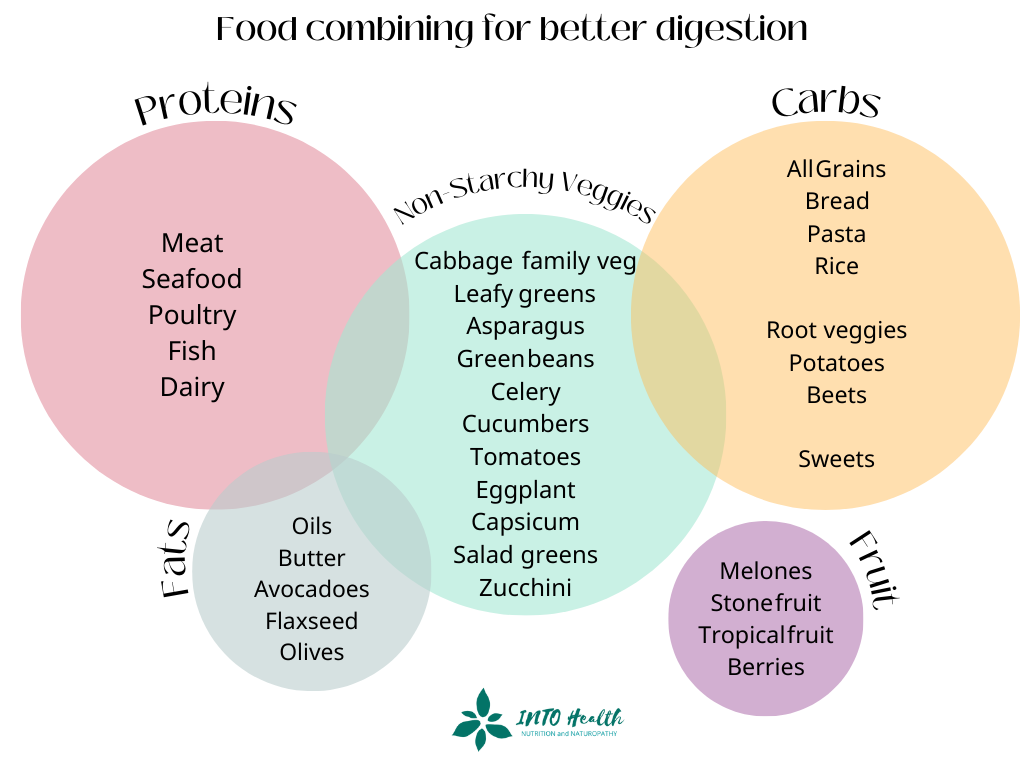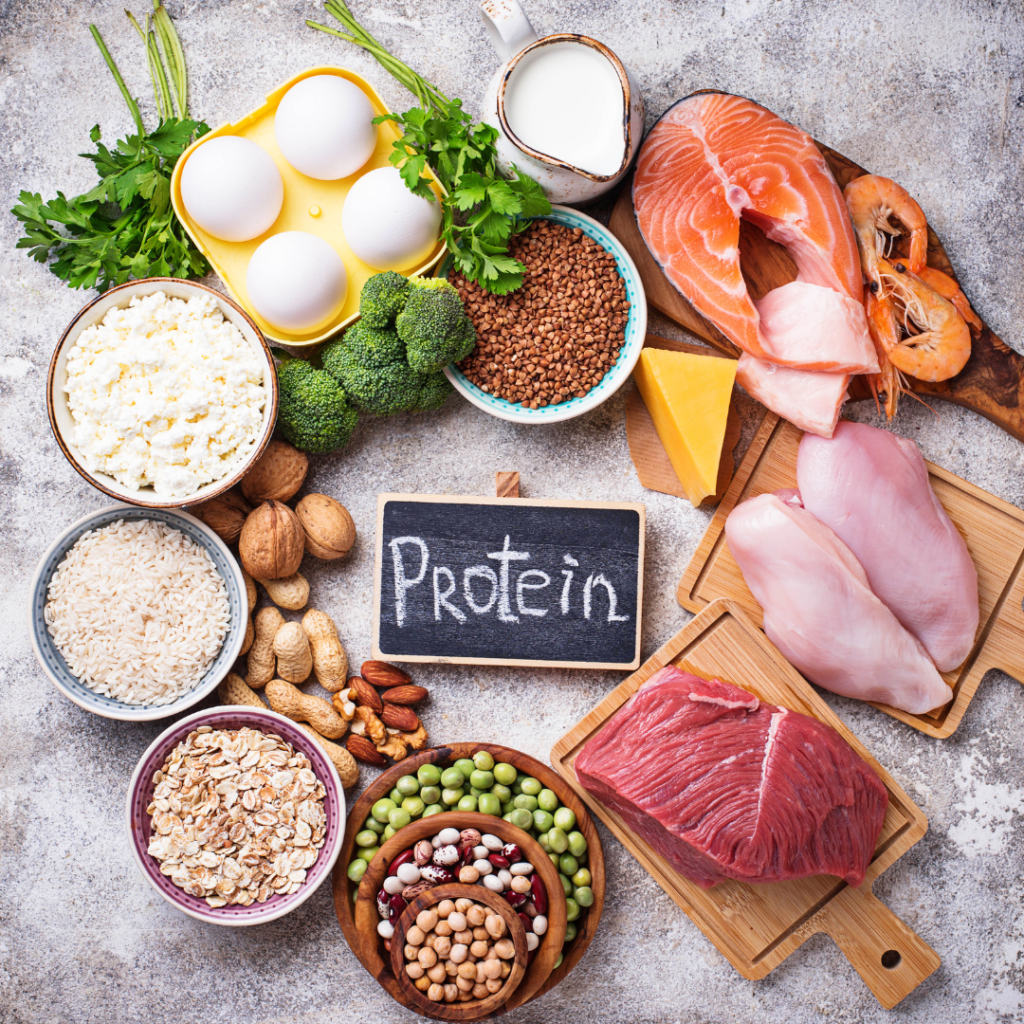Have you ever wondered which foods go well together? Have you ever noticed any digestive issues with certain food combinations?
Food combining is a concept based on the idea that certain foods go well together, while others do not. For example, eating steak with bread may lead to digestive discomfort in some people while combining steak with salad may not.
According to Ayurveda, an ancient holistic science of healing, there are set rules with food combining.
For example, fruit as a rule does not combine well with anything else. Beans shouldn’t be combined with dairy products, fruit, or animal products. Milk shouldn’t be combined with other foods especially bananas and so on.
We often find that if something has remained as traditional knowledge for thousands of years it often has merit and we should pay attention.

From a clinical experience, combining foods well can help reduce digestive discomfort in people with digestive issues, however, if your digestion is generally good, food combining is not a major focus, although it may be helpful.
For those of us that have a history of digestive issues like indigestion, there are some helpful tips when it comes to combining foods.

Generally, like with the Ayurvedic tradition, fruit is best eaten on its own. Fruit breaks down quickly, so it is best consumed alone on an empty stomach. You could get away with low-sugar fruits like berries in yoghurt or apple and pears in porridge.
Non-starchy vegetables combine well with most food groups. This is a great reason to add those veggies to your meals.
Proteins and starches however don’t seem to go well together.
You may think… What? Meat and potato don’t go well together?
Well, give it a try yourself. Compare a meal with steak & salad and a meal with steak & chips and you be the judge. Which meal caused less indigestion, bloating, burping and fatigue afterwards?
Eating proteins separately from carbohydrates may ease the digestive process. Meat is made of protein and protein digestion occurs mainly in the stomach. It relies on good stomach acid & enzyme pepsin for breakdown. Carbohydrates on the other hand, generally pass through the digestive tract more rapidly. They are broken down by pancreatic enzymes in the small intestines.
When we eat protein and carbohydrates together, especially when there is a poor digestive fire in the stomach, this can delay protein digestion. The length of time that food is sitting in the stomach is prolonged. This can result in a feeling of heaviness, bloating, belching and ultimately lead to poor nutrient absorption.

Beans for example are mostly starch with some protein which may be one of the reasons why they can be challenging to digest. They are best mixed with other starches and/or non-starchy vegetables.
Fats can generally go well with proteins and non-starchy veggies. However, combining fats with starches has some drawbacks. It is actually a relatively new phenomenon of the food processing era.
Sugar and fat are a perfect combination for a baker and a cake maker (ie cakes, biscuits, pastries) but this is not a great combination for the body especially if eaten in large amounts.
In nature, foods high in both fat and carbohydrate are very rare, however, it is very common for processed foods to have high fat and high carbohydrate content.

The main issues with this combination are not so much digestion-related, but more inducing metabolic problems such as weight gain, glucose intolerance, cholesterol issues and diabetes. So, it’s best not to have too much of this combination either.
Things to remember about food combining
- Have fruit on its own.
- Non-starchy veggies go well with everything. 🙂
- Avoid having protein and carbohydrates at the same time.
- Don’t indulge in fat and carbohydrates combination foods too much!
So, to sum up, certain food combinations, in some people, can contribute to excessive fullness, indigestion, gas formation, low energy (food coma), bloating and stomach discomfort. It may affect people with existing poor digestive function more so than an average person. Specific food combining can be helpful, but it isn’t the whole solution either. Other factors can play a role in digestion including low stomach acid, zinc deficiency, H pylori, certain acid-suppressing medications, stress, not chewing well and so on. A qualified Naturopath can assist you in identifying the underlying causes and improving your digestive function overall.
For an individualised support of your digestive issues, follow the link below and book a consultation today.